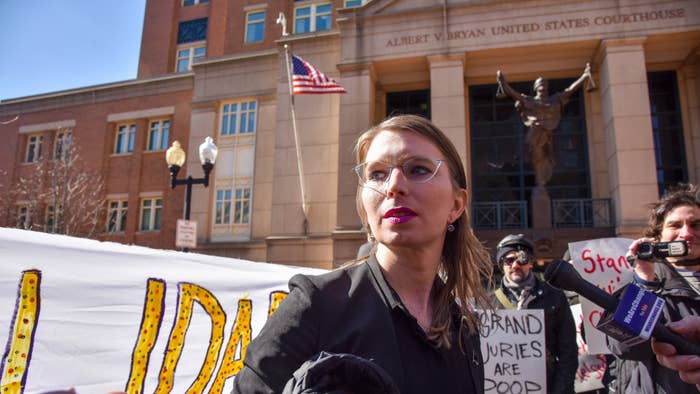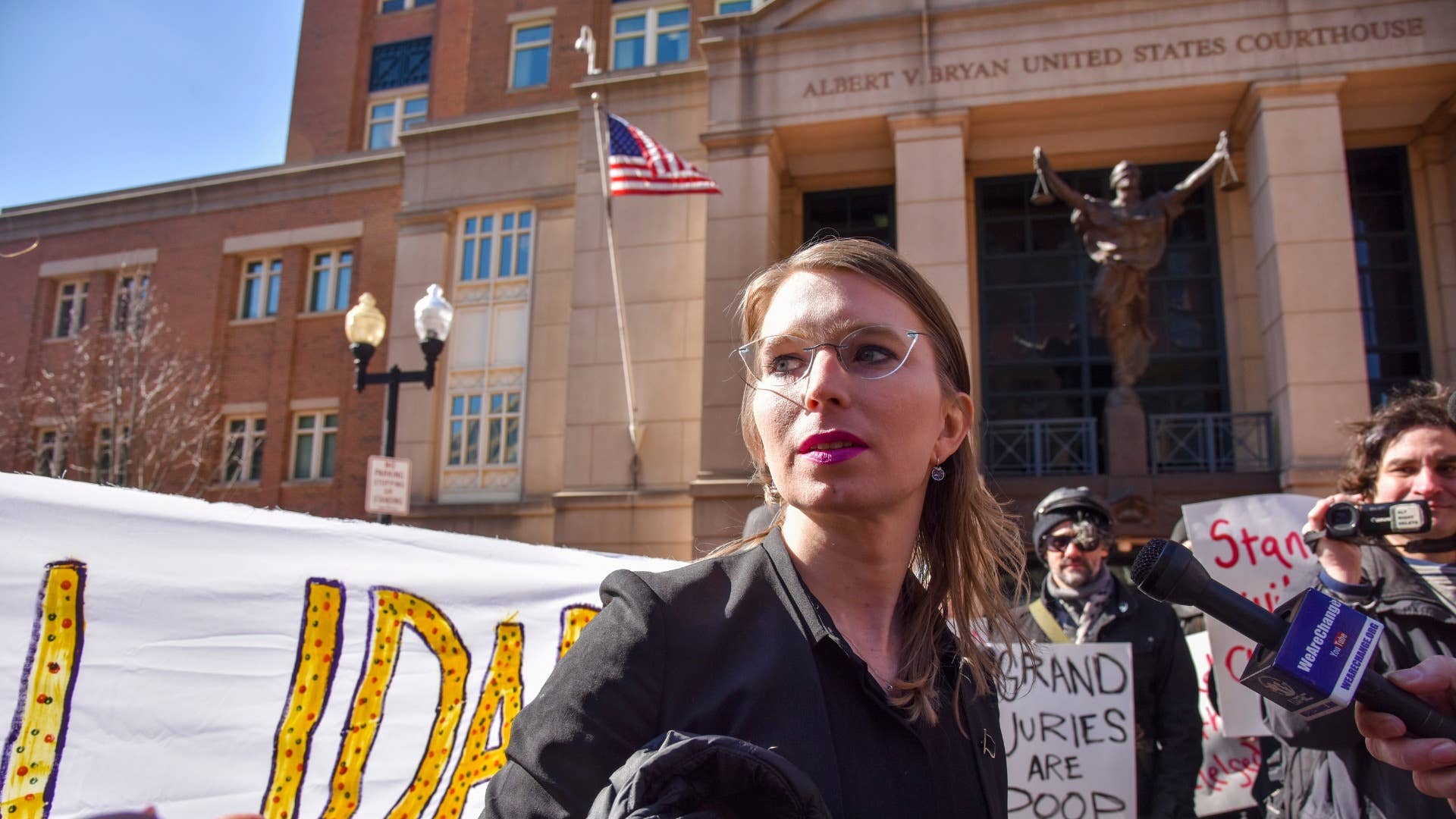
UPDATED 3/12/20, 4:45 p.m. ET: A federal judge has ordered the release of incarcerated whistleblower Chelsea Manning.
U.S. District Judge Anthony Trenga announced the decision Thursday, shortly after Manning's suicide attempt inside a Virginia detention center. She was scheduled to testify in front of a grand jury on Friday; however, the judge determined her appearance was no longer necessary.
The order reads in part:
The court finds that Ms. Manning's appearance before the Grand jury is no longer needed, in light of which her detention no longer serves any coercive purpose. The Court further finds that enforcement of the accrued, conditional finds would not be punitive but rather necessary to the coercive purpose of the Court's civil contempt order. Accordingly, is hereby ordered that Chelsea Manning be, and she hereby is, immediately released from the custody of the Attorney General.
See original story below.
Chelsea Manning is recovering in a hospital following a suicide attempt.
Manning's legal team gave a statement early Thursday in which they explained the incident as a sign of how firm she is in her convictions regarding the push from investigators to answer additional questions about Wikileaks.
"Her actions today evidence the strength of her convictions, as well as the profound harm she continues to suffer as a result of her 'civil' confinement—a coercive practice that the United Nations Special Rapporteur on Torture, Nils Melzer, recently said violates international law," Manning's legal team said.
Per the statement, Manning remains scheduled to appear for a previously scheduled hearing on Friday at which point Judge Anthony Trenga will rule regarding a motion to terminate the civil contempt sanctions originating from Manning's May 2019 refusal to provide grand jury testimony focused on the publication of her 2010 disclosures.
The statement also notes that, prior to her current incarceration, Manning braved seven years in a military prison "under unusually difficult conditions" that included 11 months of solitary confinement.
In a previously shared May 2019 letter to Trenga, Manning pushed back against the assessment that there was "no dishonor" in the process of giving evidence to a grand jury.
"I am positive that the founders never intended the grand jury to function like those we see today," Manning said. "If grand juries were actually independent bodies that nullified unjust laws or their unjust application, to determine whether it was really in the public interest to decide who should be made 'infamous' under the law, I would feel differently."

